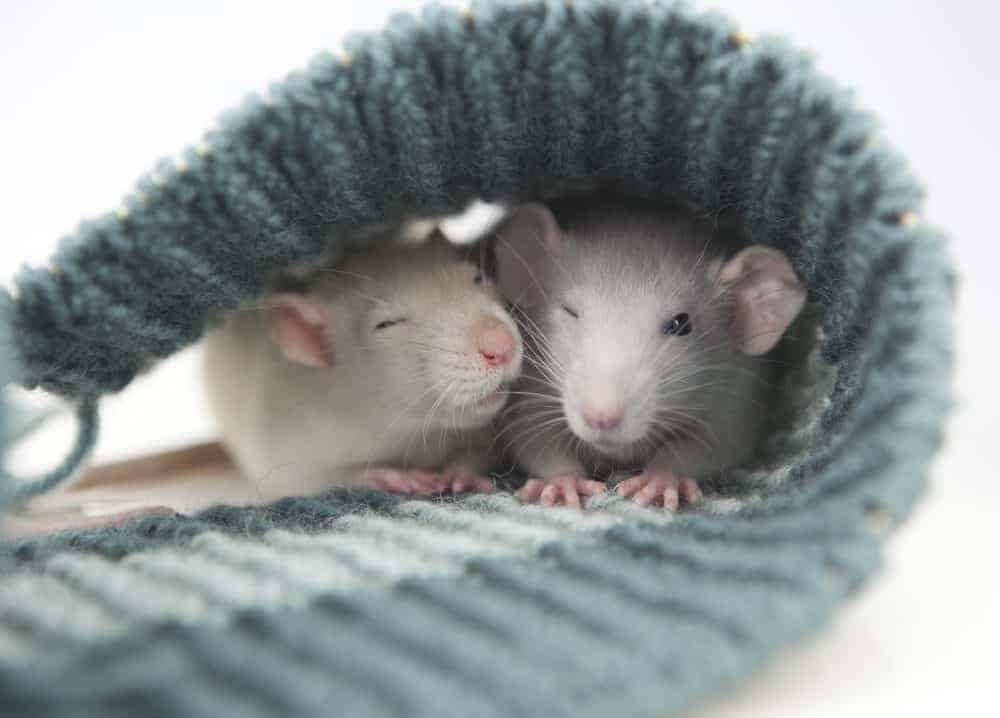
Along with chimpanzees, bottlenose dolphins, elephants, dogs, pigs, pigeons and octopuses, rats are considered by experts to be one of the smartest species on the planet. Scientists have discovered that rats, just like us, can make decisions based on what they do or do not know – something called metacognition – essentially the ability to think about thinking. This means, like humans, they can make decisions based on what they do or do not know.
In fact, the latest scientific findings could change our opinions of rats forever and highlight why they make such fantastic pets who recognise their owners, respond to their sight and voice and love to spend time hanging out with them. They also have a whole host of other talents.
Rats apply learned knowledge more quickly than humans
The Harvard Business Review recently featured a story entitled 'Rats can be smarter than people' about a PhD study conducted by Ben Vermaercke and his colleagues at KU Leuven University in Belgium. The research involved giving two cognitive-learning tasks to rats and students and comparing the results. With both tasks, the subjects were trained to distinguish between ‘good’ and ‘bad’ patterns and then tested on their ability to apply that know-how to new types of patterns. In the first task, rats and humans performed equally well. In the second, the rats did better than the students. The conclusion was that rats are able to apply what they’d learned more quickly than humans.
Dr Vermaercke commented: “Even though the rat brain is smaller and less complex than the human brain, research has shown that the two are remarkably similar in structure and function. Both consist of a vast amount of highly connected neurons that are constantly talking to each other.”
The research also challenged the notion that rats don’t see that well. Dr Vermaercke added: “People used to think rats were practically blind; now we know that their visual abilities are pretty advanced. We’ve done research showing they can tell the difference between a movie that features a rat and one that doesn’t.”
Rats are as smart as dogs
So, just how intelligent are rats? According to PETA (People for the Ethical Treatment of Animals), rats are: “Natural students who excel at learning and understanding concepts. Rats are considerably smaller than dogs, but they are at least as capable of thinking about things and figuring them out as dogs are. And, while rats are much smaller than elephants, they have excellent memories.”
American veterinarian and rat advocate Dr Karen Becker states: “Studies also show that rats are surprisingly self-aware, they're ticklish, and they dream just as we do. Pet rats are extremely social and form strong bonds with their owners. They learn their names and come when they're called, and they beg for time out of their cage to play and interact with their owners.”
And, like people, rats laugh when they’re happy, as neuroscientist Jaak Panksepp discovered in the 1990s, using a bat detector to make their ultrasonic chirps audible. Rats laugh when they play with each other and when they’re tickled. Laughing rats playfully seek tickling from people just like dogs urge their human to play.
Rats show that they care
Erin Stromberg, a keeper at Think Tank , an exhibit that highlights animal cognition at the Smithsonian National Zoo in Washington DC, points to some recent science that demonstrates rats' amazing capacity for empathy and compassion – qualities that are not often attributed to animals other than humans: "When given the choice, rats chose to free other caged animals rather than take a food reward."
Hero rats are saving human lives
Rats are also using their specialist skills to help humans. Erin Stromberg says: “People think of dogs having ‘expert’ noses, but rats’ sense of smell is even more sensitive than that of dogs. In Africa, the APOPO HeroRat non-profit organisation trains Gambian pouched rats to detect land mines that have not been detonated. That program was so successful that they have expanded it; now, they’re also training rats to identify communicable diseases, such as tuberculosis (TB). For every one they identify correctly, they get a food reward.”
The rats’ success rate is astonishing. The APOPO organisation reports that TB detection rats are at least as accurate as conventional routine microscopy, but up to 20 times faster. The mine-detection rats can search 200 square metres in one hour – with a metal detector this would take two to four days.
So, if you want some pocket-size pets who are smart, clean, empathetic, affectionate and all-round super-heroes, it could be time to join the rat pack!
Sources: hbr.org, peta.org, rspca.org.uk, bluecross.org.uk, vetstreet.com, nationalzoo.si.edu, healthypets.mercola.com














